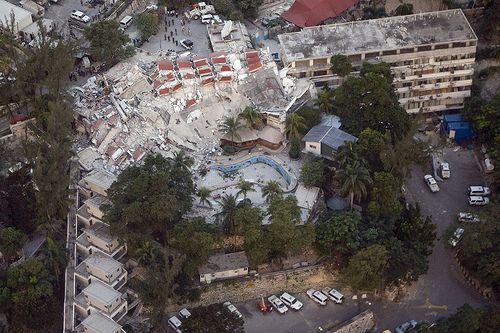In recent months there has been a spate of articles exploring different aspects of Haiti’s progress and progress of Haitian-Americans in the United States. These articles range from a gushing profile by Amy Wilentz in Conde Nast Traveler to a Wall Street Journal piece highlighting a rise in Haitian American football players, titled aptly enough “These Days, Everybody’s All-American Just May Be a Haitian.” These come on top of feature articles about prominent Haitian-Americans such as 2009 MacArthur recipient Edwidge Danticat, White House Director of the Office of Political Affairs Patrick Gaspard and musician and activist Wyclef Jean. On the one hand, these profiles suggest that Haitian-Americans are taking another step forward in gaining recognition in the United States, much as our immigrant predecessors from Ireland and Italy did in the first part of the 20th century. At the same time, when read alongside glowing reports from Bill Clinton, U.N. Special Envoy to Haiti, about improved conditions for entrepreneurs and improved security on the island, it appeared, as one colleague recently put it, that Haiti was finally “open for business.”
Yet I have learned over time that progress is relative. The latest reminder was the earthquake that struck Port-au-Prince Tuesday afternoon. The quake earthquake measured a 7.0 on the United States Geological Survey scale, and had up to six aftershocks, one measuring as high as 5.9. These recorded aftershocks were only a small part of the shockwaves that this quake sent throughout Haiti’s diaspora in the United States. In cities such as Boston, Miami and New York, where this nation’s million-plus Haitian immigrants are primarily located, people desperately mined radio airwaves, social-networking sites and telephone lines for information about relatives back home.
My hunt commenced upon noticing a flurry of text messages from close friends inquiring about my relatives in Haiti when I retrieved my phone after a workout. I then proceeded to do, as I have always done in moments like this, 1.) make a call to my parents to see if they’ve gotten any information and 2.) if they’re not home call my aunt Bertolette, the other family member who keeps in close contact with our family members in Haiti. As is often the case, no one had been able to reach my aunts and cousins, and after encouraging me to continue on with my own search, they went back to the phones to see what they could dig up.
Tuesday’s earthquake reignited a process that began immediately following Jean-Claude Duvalier’s ouster and continued throughout the 90’s, when it seemed that every other month there was coup or some other form of political unrest that sent the nation into a tailspin. Back then it was easy to chalk up difficulties in making contact via phone to the failings of Haiti’s lone telephone company, at the time called Teleco, which was either ill equipped to or uninterested in providing dependable phone service to the island’s nine million residents. Once cell phone companies Digicel and Voila arrived in Haiti, Haitians were liberated from Teleco’s derelict service — but as natural disasters such as a spate of catastrophic hurricanes in 2005 and 2008 and Tuesday’s earthquake revealed, World Bank and public policy precepts like democracy, development and progress cannot absorb the full weight of nature’s wrath. Just as Haiti appeared to be turning the corner, Haitians across the United States, and on the island, find ourselves in the same corner yet again, appealing for donations, reallocating aid that was to have gone to business and infrastructure development toward the latest traumatic natural disaster, and shutting down phone lines as we try making connections.
Moving forward from Tuesday’s earthquake will not be easy, but is not impossible. After all, while it may seem that progress is a distant relative to most Haitians, it is a relative nonetheless.
If you are looking to help here are two things to consider:
(1) There are numerous organizations that are providing immediate relief in Haiti. A short list includes Doctors Without Borders, Partners in Health, Mercy Corps and the Red Cross. Donate $10 to the Red Cross to be charged to your cell phone bill by texting “HAITI” to “90999.”
(2) Without discouraging anyone from making a donation to the above disaster relief organizations, I encourage everyone to also think about smaller organizations that are also working in Haiti and which might have suffered significant damages. It is critical that we also keep these organizations up and running so that they can not only help with disaster efforts, but also do the work that they have been doing for years. Two such organizations include: Lambi Fund and Yele Haiti. A third is Haiti Soleil, a organization on whose board I serve.
The key in this crisis is to not only think about Haiti’s plight today, but to whatever extent possible two years and two decades from today.








